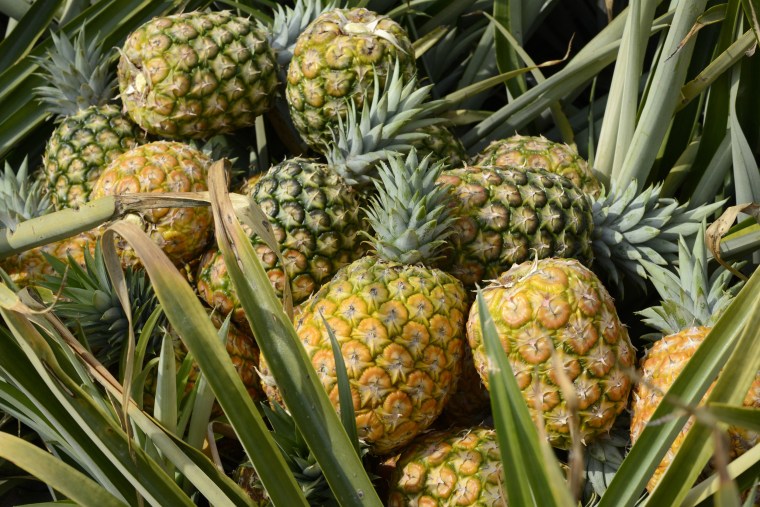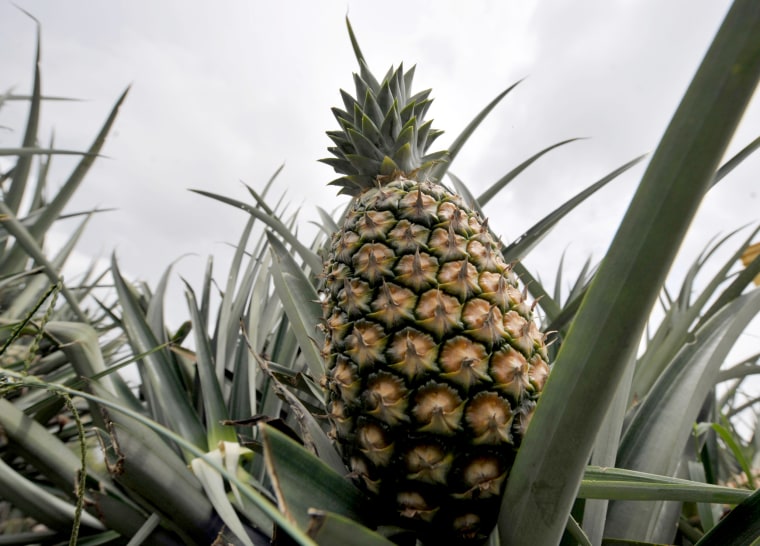A strain of pineapple genetically engineered to be pink instead of yellow got the go-ahead from the U.S. Food and Drug Administration on Wednesday.
The pink pineapple, made by Del Monte Fresh Produce, simply has some genes toned down to keep the flesh of the fruit pinker and sweeter, the FDA said.
"(Del Monte) submitted information to the agency to demonstrate that the pink flesh pineapple is as safe and nutritious as its conventional counterparts," the FDA said.

"(Del Monte’s) new pineapple has been genetically engineered to produce lower levels of the enzymes already in conventional pineapple that convert the pink pigment lycopene to the yellow pigment beta carotene. Lycopene is the pigment that makes tomatoes red and watermelons pink, so it is commonly and safely consumed."
Related: No Need to Label GM Crops, FDA Says
The pineapple will be grown in Costa Rica. The company will label it "extra sweet pink flesh pineapple."
The FDA has for years said genetically engineered plants are safe and says there is no need to even label GM plants, although federal law requires labeling.
“Humans have been modifying crops for thousands of years through selective breeding."
Last year, the FDA approved the first genetically modified (GM) animal approved for the U.S. food market — a salmon engineered to grow faster than usual.
"Crop improvement happens all the time, and genetic engineering is just one form of it," the FDA said.
Related: GM Potato Gets USDA OK
"We use the term ‘genetic engineering’ to refer to genetic modification practices that utilize modern biotechnology. In this process, scientists make targeted changes to a plant’s genetic makeup to give the plant a new desirable trait. For example, two new apple varieties have been genetically engineered to resist browning associated with cuts and bruises by reducing levels of enzymes that can cause browning."
In the U.S. bioengineered soybeans make up 93 percent of soy crop and bioengineered corn varieties makes up 88 percent of the acreage of planted corn. Most sugar comes from GM beets.
Related: Obama Signs GMO Food Label Law
"Humans have been modifying crops for thousands of years through selective breeding," the FDA said.
"Early farmers developed cross breeding methods to grow numerous corn varieties with a range of colors, sizes, and uses. For example, the garden strawberries that consumers buy today resulted from a cross between a strawberry species native to North America and a strawberry species native to South America."

